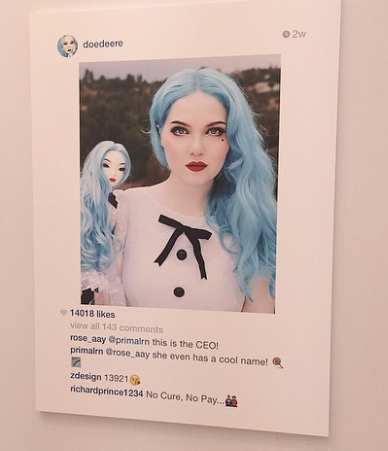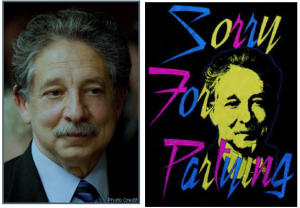With much anticipation, the Second Circuit issued its opinion last week in the Google Books case (Authors Guild et al. v. Google, Inc.), brought by authors Jim Bouton (of Ball Four fame) and others against Google for the latter’s program of scanning millions of library books, whether or not those books are in the public domain. My overwhelming reaction to the opinion, however, in the realm of visual art, is what a lost opportunity the Prince v. Cariou decision was two years ago, and some optimism that the most recent decision will start to provide useful guidance for practitioners that has been harder to give with confidence since Prince. After two years of the preeminence of the first fair use factor threatening to dwarf everything with a “transformativeness” test that essentially any use could meet, Google Books (even while finding a fair use) restores some balance to that analysis.
Google Books, Fair Use, and Visual Art—Second Circuit Writes Decision That Would Have Helped Two Years Ago
Topics: Richard Prince, Campbell v. Acuff-Rose Music, Hildebrand Gurlitt, 510 U.S. 569, Teenage Mutant Ninja Turtle, Prince v. Cariou, Second Circuit, Canal Zone, Patrick Cariou, Toward a Fair Use Standard, Michelangelo, Suicide Girls, Inc., Google Books, The Legal Guide for Museum Professionals, Pierre Laval, Jim Bouton, Copyright, transformativeness, Fair Use, Nazi-Looted Art: Risks and Best Practices for Muse
Richard Prince, Social Media and the Public Domain: Reports of Copyright’s Demise are Premature
Reactions to the Richard Prince Instagram story continue to filter in, and highlight the perpetual confusion between what is publicly available and what is in the public domain. They are not the same thing, with important legal consequences.
Topics: Richard Prince, Missy, Copyright Act, Prince v. Cariou, Canal Zone, Patrick Cariou, Suicide Girls, vulture.com, Yes Rasta, 17 U.S.C. § 107, Jerry Saltz, Instagram, Copyright, transformativeness, Fair Use, ArtNet, New York Magazine, § 107
Fair Use Fool me Twice, Shame on Me—Richard Prince Goes Trolling on Instagram But May Have a More Pedestrian Problem
Few art law cases have received as much attention as that of Richard Prince and his dispute with Patrick Cariou over the latter’s Yes, Rasta photographs that Prince altered, defaced, and otherwise rearranged for his Canal Zone series. Prince has now garnered renewed attention for his appropriation of Instagram images in a set of works he has been selling at a Gagosian Gallery show called “New Portraits" (and in various other venues over the last few months). He escaped liability for infringement of Cariou’s pictures (though the case settled after remand; several infringement claims were still in play when the parties settled). Can he do so again? If this recent effort is not infringement, it certainly begs the question of whether the fair use exception has swallowed the rule. Lastly, Instagram itself may have prohibited the entire exercise in its terms of use, a possible avenue to short-circuit the entire copyright exercise.
Topics: Richard Prince, Copyright Act, DoeDeere, 2LiveCrew, Prince v. Cariou, Roy Orbison, Canal Zone, Patrick Cariou, Internet, Yes Rasta, 17 U.S.C. § 107, Instagram, Copyright, Gagosian Gallery, transformativeness, Fair Use, § 107
Fair Use and Transformativeness Pushback: Seventh Circuit Takes a Swipe at “Lazy Appropriators”
Much ink has been spilled over the new world order seemingly announced by last year’s Second Circuit decision in Prince v. Cariou with regard to copyright, fair use, appropriation art, and “transformativeness.” In a nutshell, while roundly criticized, most commentators have taken the Prince decision to announce the apotheosis of “transformativeness” among the fair use factors in § 107 of the Copyright Act. Prince looked at the four statutory factors and applied them in such a way that to be considered “transformative” was to qualify for fair use. Most troubling was the “know it when you see it” character of the opinion. The Google Books opinions took a similar view.
Topics: Richard Prince, Cheshire Cat, Copyright Act, 17 U.S.C. §106, Seventh Circuit, Prince v. Cariou, Mifflin Street Block Party, Google Books, Campbell v. Acuff Rose, Wisconsin, Sorry for partying, Madison, Copyright, Kienitz v. Sconnie Nation LLC, Judge Frank Easterbrook, First Amendment, transformativeness, Fair Use, mayor Paul Soglin, 17 U.S.C. §107





